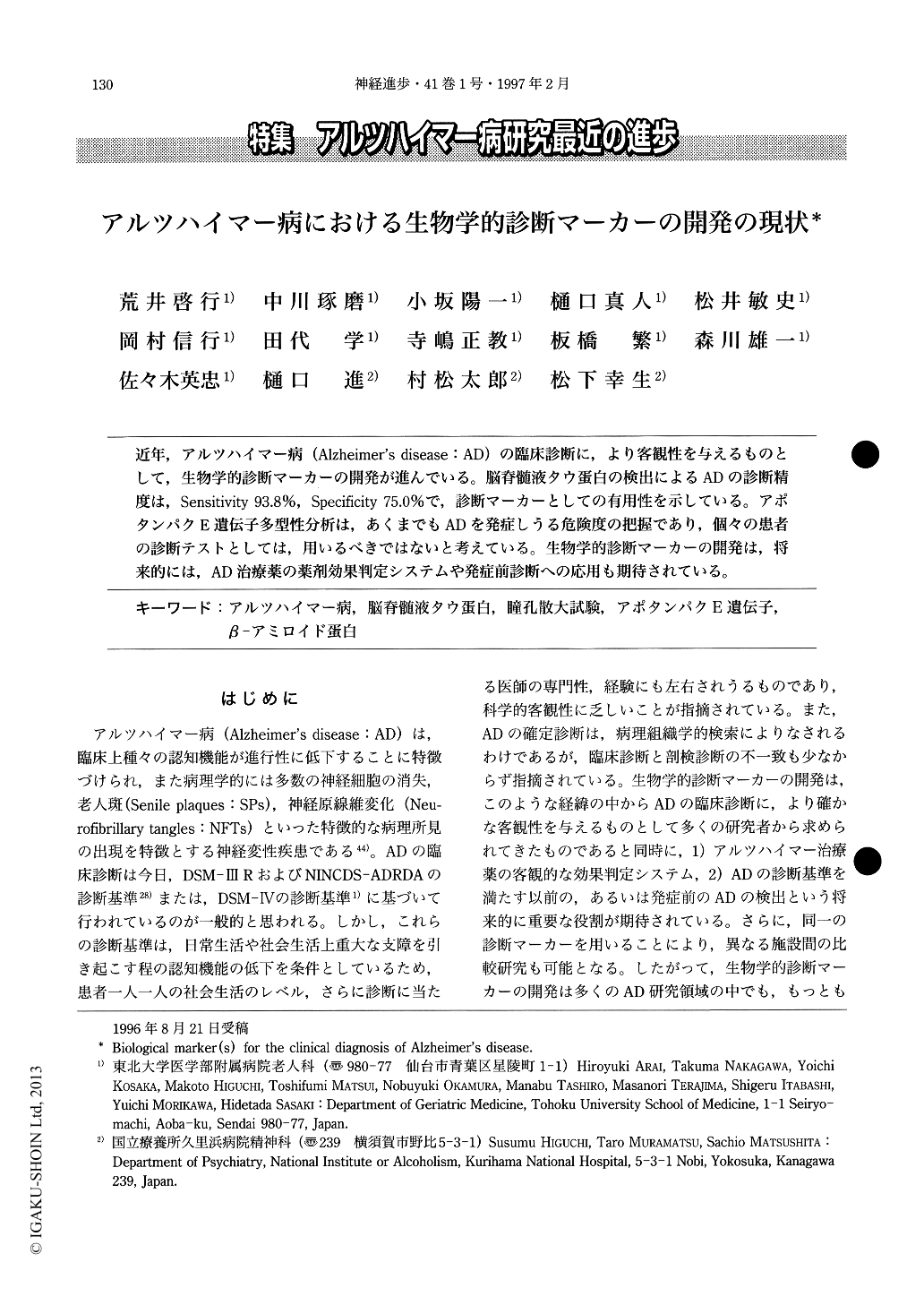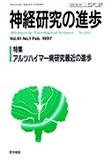Japanese
English
- 有料閲覧
- Abstract 文献概要
- 1ページ目 Look Inside
近年,アルツハイマー病(Alzheimer's disease:AD)の臨床診断に,より客観性を与えるものとして,生物学的診断マーカーの開発が進んでいる。脳脊髄液タウ蛋白の検出によるADの診断精度は,Sensitivity 93.8%,Specificity 75.0%で,診断マーカーとしての有用性を示している。アポタンパクE遺伝子多型性分析は,あくまでもADを発症しうる危険度の把握であり,個々の患者の診断テストとしては,用いるべきではないと考えている。生物学的診断マーカーの開発は,将来的には,AD治療薬の薬剤効果判定システムや発症前診断への応用も期待されている。
There is a compelling need to develop diagnostic marker (s) to confirm a clinical diagnosis of Alzheimer's disease (AD) in order to unequivocally identify AD patients during life for emerging therapeutic interventions. Cerebrospinal fluid (CSF) tau (CSF-tau) appears to be a reliable marker to distinguish AD from non-AD patients with a sensitivity of 93.8% and a specificity of 75.0%. CSF-tau is elevated in AD irrespective of age at onset, clinical stage, apolipoprotein E genotype (ApoE), α1-antichymotrypsin genotype, presenilin-1 genotype, sex and racial group. In contrast, ApoE genotyping can not provide the presence or absence of AD nor should be used as a sole diagnostic test for AD. Biological marker (s) would be used not only for an aid in diagnosis, but also for monitoring of therapeutic response as well as for the early detection of AD patients.

Copyright © 1997, Igaku-Shoin Ltd. All rights reserved.


